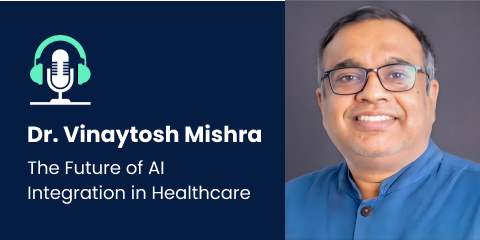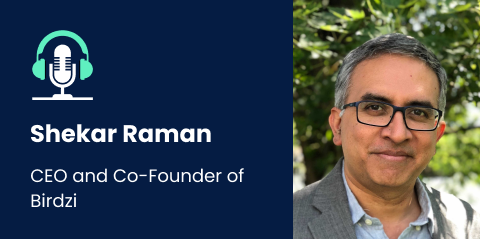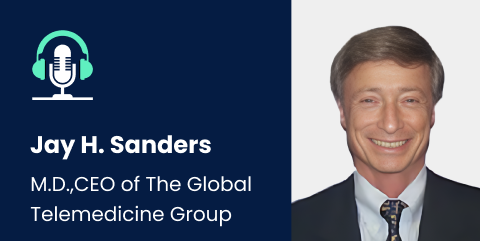Podcast Insights:
- In healthcare, holistic refers to a multi-speciality approach that encompasses both traditional and functional medicine, tailored to individual patients based on factors such as age, physiology, and health goals, whereas personalized healthcare involves tailoring treatments to the specific needs of each patient.
- Traditional healthcare systems were primarily designed to address acute diseases, but the majority of diseases today are chronic, influenced by dietary, lifestyle, and environmental factors. Consequently, there is a paradigm shift from acute to chronic diseases.
- Treating chronic diseases requires a broader perspective and consideration of underlying factors, which can be challenging within the confines of a specialist-focused hospital setting.
- Technology plays a significant role in enabling personalized and holistic healthcare by facilitating multi-speciality collaboration and leveraging data analysis. Through augmented intelligence, AI, and clinician expertise, healthcare professionals can shift from viewing patients as isolated diseases to understanding and treating the whole person in a personalized and holistic manner.
- Chronic diseases often share common underlying factors such as insulin resistance, chronic inflammation, stress and high cholesterol levels, which may or may not be related to the environment.
- The coexistence of multiple chronic diseases is common. Individuals with one chronic disease often have multiple concurrent conditions, such as hypertension, high cholesterol levels, and insulin resistance, as these diseases can mutually affect each other.
- Data engineering plays a crucial role in understanding the interconnectedness of chronic diseases. By analyzing symptoms, pre-symptoms, and diagnosed conditions, it becomes possible to predict other existing or potential future diseases in an individual.
- Machine Learning techniques can be utilized in both diagnosing chronic diseases and predicting their progression. By leveraging patient data, algorithms can assist in rapidly diagnosing chronic diseases in individuals and identifying effective strategies for managing and reversing those conditions.
- Data Engineering and Machine Learning enable personalized approaches to support individuals with chronic diseases. By leveraging insights about each patient’s specific condition, tailored interventions and management plans can be developed.
- Telemedicine has become more established and consistent post-COVID, offering various forms of communication such as audio, video, and chat-based consultations. Particularly audio and video consultations are highly useful for individuals with acute diseases or those requiring referrals to specific specialists.
- However, for conditions involving physical symptoms, especially in women, teleconsultations without physical examination may be insufficient. Further investigations, such as remote device usage or clinical support like ultrasounds, may be necessary.
- Chat messenger-based interactions are gaining popularity, particularly among female populations, as they allow for quick question-and-answer exchanges without the need for lengthy consultations.
- The use of chat-based telemedicine and more formalized interactions with patients is an area that is currently underutilized and under-explored by many providers. Though informal communication platforms like WhatsApp have been commonly used by patients to communicate with doctors.
- Telemedicine provides the opportunity to access healthcare professionals from around the world, allowing for global second opinions and expanding access to specialized care. The best practices of telemedicine are still being discovered, and further exploration is needed to determine the optimal approaches and utilization of telemedicine in different healthcare contexts.
- Digital technologies need to be developed in a way that aligns with existing clinical pathways used by doctors for diagnosis and treatment. This ensures that the technologies either replace or enhance current practices, making clinical pathways more efficient.
- Technologies must be fully integrable and interoperable within traditional healthcare frameworks to facilitate adoption by clinicians. This has been a challenge for health tech companies and can hinder their ability to showcase their capabilities.
- Future developments should focus on enabling individuals to manage chronic diseases outside healthcare facilities effectively. This involves providing them with information, tools, and access to their health data, allowing them to take control of their own care.
- Blockchain, with its decentralized and immutable ledger system, has potential applications in healthcare. It can facilitate secure data sharing, giving individuals the ability to have permission for their data and decide who to share it with. This technology can help in decentralizing health data and empowering individuals.
- Future developments should aim to revise ownership and realign patients and individuals as primary architects of their own care. By empowering individuals with their health data and decision-making capabilities, healthcare can become more patient-centric and participatory.
- The centralization of health data and the effective empowerment of individuals through technologies like blockchain have the potential to transform and compete in the entire healthcare industry.
Transforming Women’s Healthcare with NABTA Health Technology
Discover how Sophie Smith of NABTA Health revolutionizes healthcare with personalized, holistic care and tech innovations.
Duration: 20 minutes 29 seconds
Dr. Vinaytosh Mishra is the Director of Thumbay Institute for AI in Healthcare and Associate Professor for Healthcare Management (Management,...
Play EpisodeDuration: 33 minutes
Shekar Raman is the CEO and co-founder of Birdzi, a grocery retail AI solutions company. He is passionate about leveraging...
Play EpisodeDuration: 43 minutes
Jay H. Sanders, M.D., CEO 0f The Global Telemedicine Group, discussed the decisive rise of telemedicine and future of healthcare.
Play Episode

